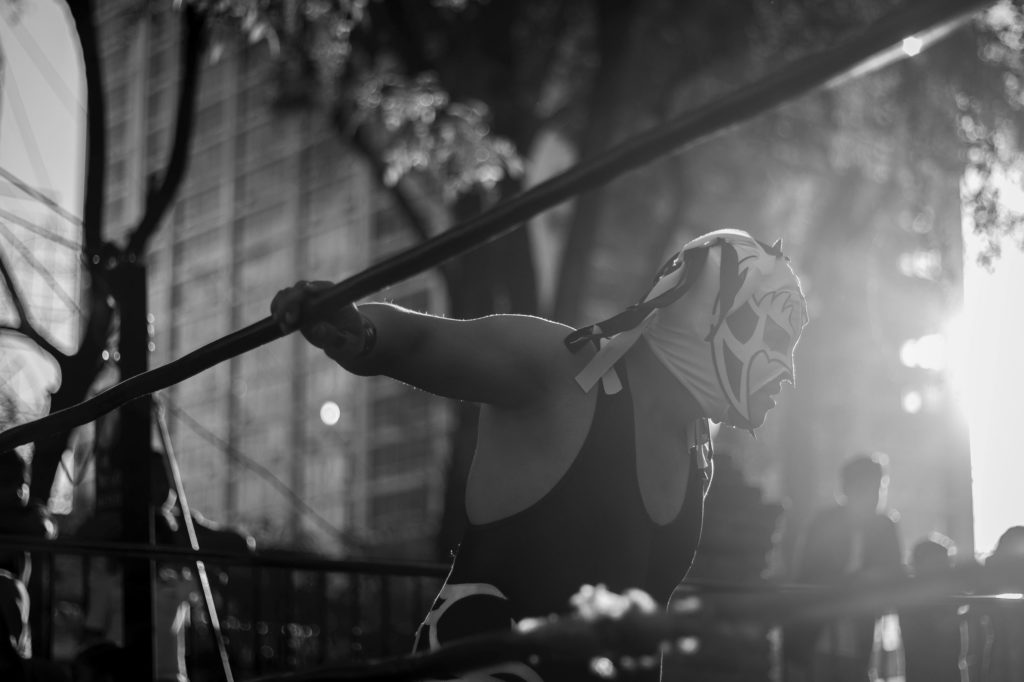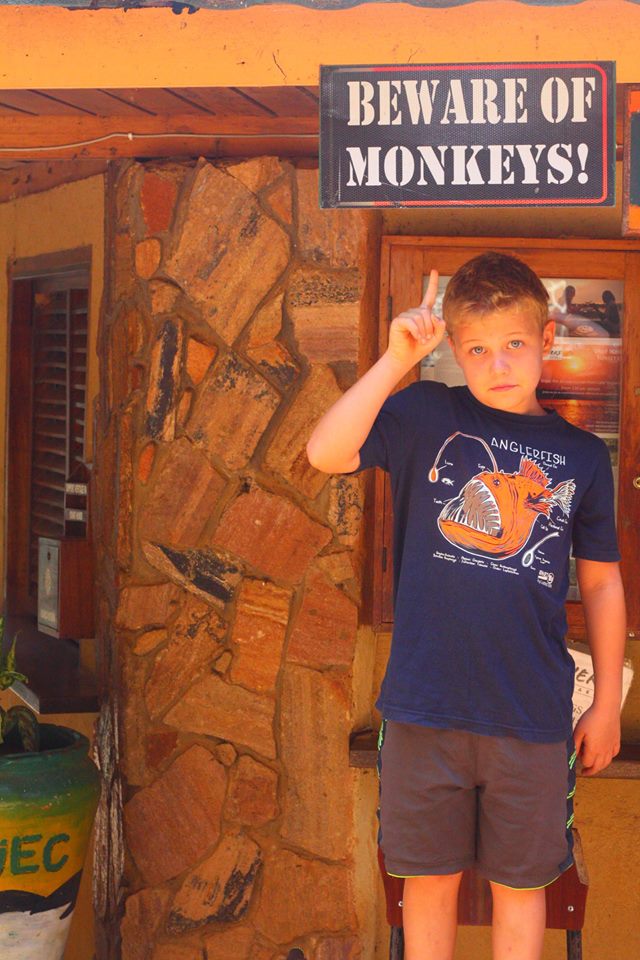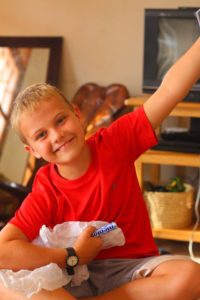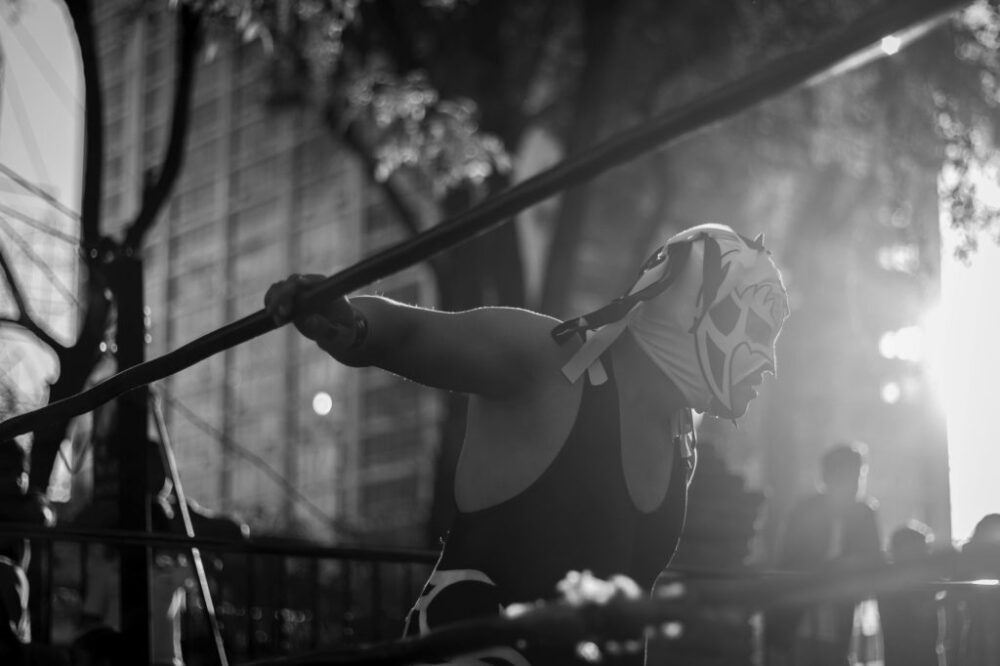 I sat at lunch on Sunday with a handful of friends over turkey with homemade gravy and mashed potatoes (“So much for Keto,” mumbled the woman dishing up next to me). Of all things, the topic turned to high school wrestling. Two of the guys next to me had competed in high school.
I sat at lunch on Sunday with a handful of friends over turkey with homemade gravy and mashed potatoes (“So much for Keto,” mumbled the woman dishing up next to me). Of all things, the topic turned to high school wrestling. Two of the guys next to me had competed in high school.
One of them, Marshall, is 6’3″. In high school, he was upwards of 190 lbs. Maybe that’s why I was surprised at who he said were the most formidable in the sport: The kids from the school for the blind. In fact, one of them was the state champ during Marshall’s years in competition. At the time those students had no other sports other than swimming in which they could compete; baseball, basketball, and football were all out. So they competed year-round.
Even more than that, we all reflected aloud, was a blind wrestler’s exaggerated sense of touch. We’ve all heard that with the loss of one of our senses, our other senses rally to compensate (think of Stevie Wonder or Ray Charles).
The Scientific American reports that the brain actually rewires itself to boost the other senses. It’s a phenomenon now known as cross-modal neuroplasticity: “If one sense is lost, the areas of the brain normally devoted to handling that sensory information do not go unused — they get rewired and put to work processing other senses.”
Rewired in Struggle

I have to admit that as I thought about all this (and moved on to my broccoli salad), my brain went off-roading a bit.
I was thinking about our recent cancer scare with my second son–and the remarkable response of his faith as he was willing to place his life in God’s hands. Someone had once told me that Abraham, when asked to sacrficie his son, hadn’t received the faith he needed like some supernatural shot in the arm. Faith was something built.
Though a lot of people liken faith to a muscle, my husband pointed out that maybe it’s more like the rappelling my husband’s performed on cliffs, even over a waterfall in Africa.
Perhaps faith is more about loosening our death-grip on the rope, and realizing the breathtaking freedom of leaning back into trust.
Where did my son develop such a capability to release, I wondered?
As my husband and I talked about it, the most obvious was his diagnosis of ADHD at age five, and then a couple of years later, dysgraphia. No blog post has a large enough word count for me to communicate the tears (his and mine), his mortifiying lack of self-control, his playdates where we established consequences for not melting down or hitting anyone. He and I muscled through spelling lists two years behind his grade level. There were countless prayer and pleading and systems put in place. Mind you: We are still a work in progress.
But he is now my most resilient child. I have discovered such a gratitude for the ways these disorders have grown our family.

Imagine the tears I swallowed when his eyes lit up with the topic choice for his first school speech: “The Treasures of ADHD.” His conclusion? I am glad for the way I am. I am still amazed by the way God made me.
Less than six months after his diagnosis, our family moved to Africa. Though sometimes it drove me crazy, we were frequently without power or internet or water–a built-in delay of gratification (for all of us, doggone it). If my kids purchased a Lego set, it would be coming over in the next three or four months with an intern. And the same kids were in the car when we were robbed at Christmastime.
Heightened Senses
I say that not to glorify suffering. But I read last week about “snowplow parents“, who aim to shove every obstacle out of their child’s way. Experts are speculating that this actually results in kids ill-prepared for adulthood.
Instead, I think to the blind wrestlers. What if our children not having something, or encountering obstacles and pain…causes other senses, like faith and gratitude and perseverance, to kick into high gear?
In this possible cancer, my son’s hard-earned habits from ADHD kicked in: Let’s get thankful. We conglomerated our thanks on a neon-yellow index card stuck in our family’s “cancer binder.” His habits of trusting God, I understand now, were just ratcheted up a level.
Just a couple of weeks ago, my son didn’t make advanced band (three out of the four saxophonists made it in. Poor #4). I admit to taking him for a donut. We sat there across the sticky table from each other. “I just feel like I have more setbacks than wins,” he shrugged, so clearly in pain. But within a week, he’d devised a solution so he could still progress in band. He’d rallied his troops once again.
No, by all means, my son is not getting it all right (he’s the one who tried to quit football last fall). But this is what I want more than a straight-A student, or even one who makes the first cut in advanced band: A child with a heightened sense of God, adapting His character, and wrestling through blindness.
Like this post? You might like
- When Your Child’s Weaknesses Feel Overwhelming
- When You’re Afraid of Getting Your Child’s Behavioral Diagnosis
- What I am slowly learning…because of my son’s learning disorders, Part I and Part II
- Guest Post: Helping Our Kids Turn Suffering into Praise







